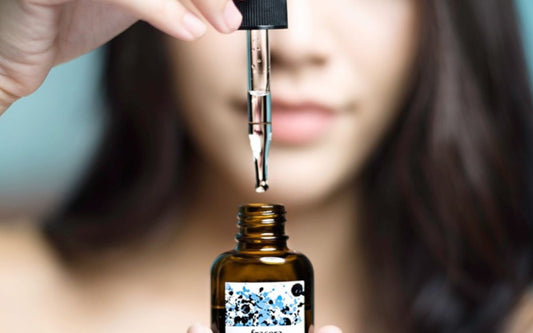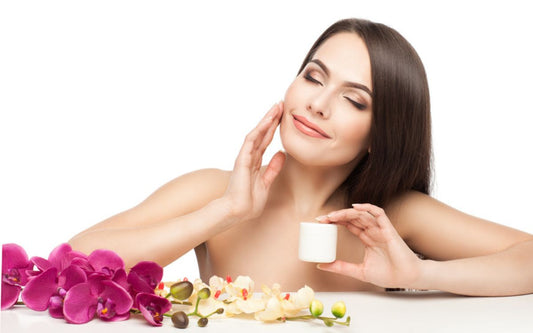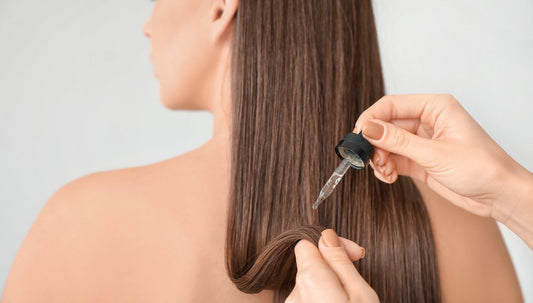In everyday conversation, everyone means the same thing when they talk about acne or pimples. So, are they identical? Definitely not. Because we don't understand the fundamental difference between acne and pimples, we don't get involved with the real science behind the condition or find effective solutions to avoid them. A significant difference between pimples and acne is that the latter is a medical condition, while the former is just a symptom. But they both have devastating effects on women's mental health and self-esteem.
Also, research shows that many women feel self-conscious about their appearance because of acne and other skin problems. We intend to dispel these myths through this blog.
Before we can properly differentiate between the two, let's make sure we understand each one separately.
The Acne Mystery: What Is Acne?
So, what is acne? Acne is a widespread skin condition marked by blocked pores. These clogged pores continually bring forth various kinds of pimples, including blackheads and whiteheads. You can see acne in your hair follicles and oil glands on your face. Although acne impacts people's lives negatively, it is possible to boost skin health with the right treatment.
It's critical to understand the causes of acne before diving into treatment options. Your skin's surface pores are associated with glands that secrete sebum, an oily material. A follicle connects the glands and pores; it also contains an outer-growing hair follicle. The combination of dead skin cells with sebum blocks the hair follicle. Red, inflamed pimples, commonly known as acne, develop when bacteria within this gap cause inflammation.
What Are The Types Of Acne?
There are different types of acne, each with its own unique set of symptoms, such as:
- Papules: Little red lumps that could be sensitive to touch.
- Pustules: They resemble papules but have pus inside, which makes the center look white or yellow.
- Nodules: Large, solid lesions that grow deep under the skin and are quite painful.
- Cyst: Painful and potentially scarring deep sores packed with pus.
- Whiteheads: comedones that are closed and covered with a thin layer of skin; they seem like little bumps—white or flesh-colored.
- Blackheads: Comedones that are open and have a dark surface are a result of melanin oxidation and look black.
The Pimple Mystery: What Is Pimple?
A contaminated, blocked pore on the skin is what causes a pimple. Pimples are a kind of acne lesion that looks like raised, pus-filled lumps on the skin. These usually manifest when excessive sebum, dead skin cells, and bacteria block the pores.
Also, a pimple can be anything from a tiny red bump to a larger, more painful lesion like a pustule or cyst, depending on its severity. The most common areas for pimples to appear are on the face, neck, back, chest, and upper arms.
What Causes Pimples On The face?
Here is a list of multiple things that might cause acne.
- Excessive secretion of sebum.
- Uncontrolled keratin creation.
- Raised bacterial count on your skin.
- Hormonal changes.
How Do Acne and Pimples Effect The Skin?
Many people deal with acne and pimples at some point in their lives. Although it can appear in adults, it mostly impacts young people when their hormones are changing. Adults generally find acne to be excessively irritating. Even into their thirties and forties, some of them still deal with acne. Dermatologists refer to it as "adult-onset acne."
Even though acne and pimples are mainly seen as cosmetic issues, they really affect one's day-to-day functioning. It has the potential to profoundly affect one's sense of self-worth, self-assurance, social interactions, and self-perception in general. Acne affects more than just the skin; it can have far-reaching effects on a person's whole self-esteem.
What Are The Key Differences Between Acne And Pimples?
The main differences between acne and pimples are as follows:
- Though both acne and pimples include the development of skin lesions, pimples are more narrowly defined as inflamed, pus-filled bumps, while acne includes a wider range of lesions such as comedones, papules, pustules, nodules, and cysts.
- Acne is a long-term disorder with multiple causes; pimples might pop up occasionally as a result of transient triggers.
- There may be some overlap in the methods used to treat acne and pimples; each lesion is treated differently depending on its severity and nature.
What Are The Best Treatments For Acne And Pimple?
The following are different approaches that you can use to treat acne or pimples:
- The best methods for dealing with acne and pimples are those that target both the symptoms and the causes of the condition. For moderate cases, over-the-counter topical therapies with substances like retinoids, salicylic acid, or benzoyl peroxide are routinely utilized.
- Additionally, experimenting with various serums can be beneficial. There are anti acne serums available that incorporate ingredients like salicylic acid and retinoids. For instance, Misty Anti Acne Serum is formulated with salicylic acid, retinoids, tea tree oil, and zinc, which are highly effective in combating both acne and pimples. Furthermore, researching the best serum for glowing skin in Pakistan can help you find the most suitable option for your skin type.
- A combination of mild, non-comedogenic washing with topical benzoyl peroxide or salicylic acid treatments can alleviate inflammation and speed the healing process of acne.
- Tea tree oil or sulphur used topically can have the same effect.
- In more serious cases, dermatological procedures like injecting corticosteroids or draining big cysts may be required.
Also Read: Best Serum for Acne
Conclusion
We hope that from now on you will be able to explain acne and its differences to anyone who asks. You need to take care of yourself and take action to prevent or lessen their appearance because they are a result of an excess of sebum. Also, seek prompt medical attention from a dermatologist and utilize an anti acne serum or medications, if your acne is particularly bad or won't go away. Learn more about the best skin care products in Pakistan and how they can help you eliminate this skin disease.




